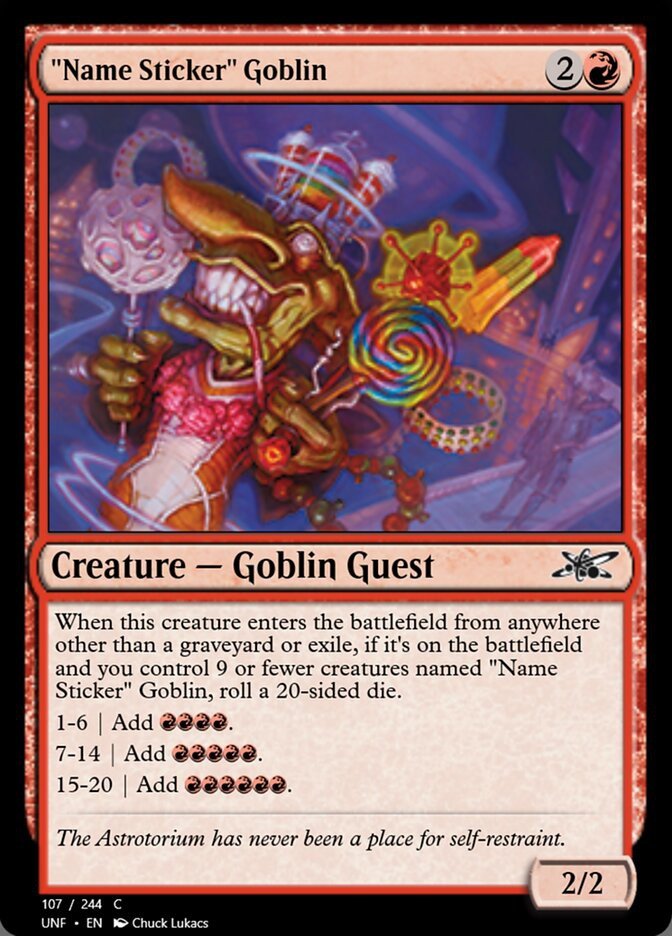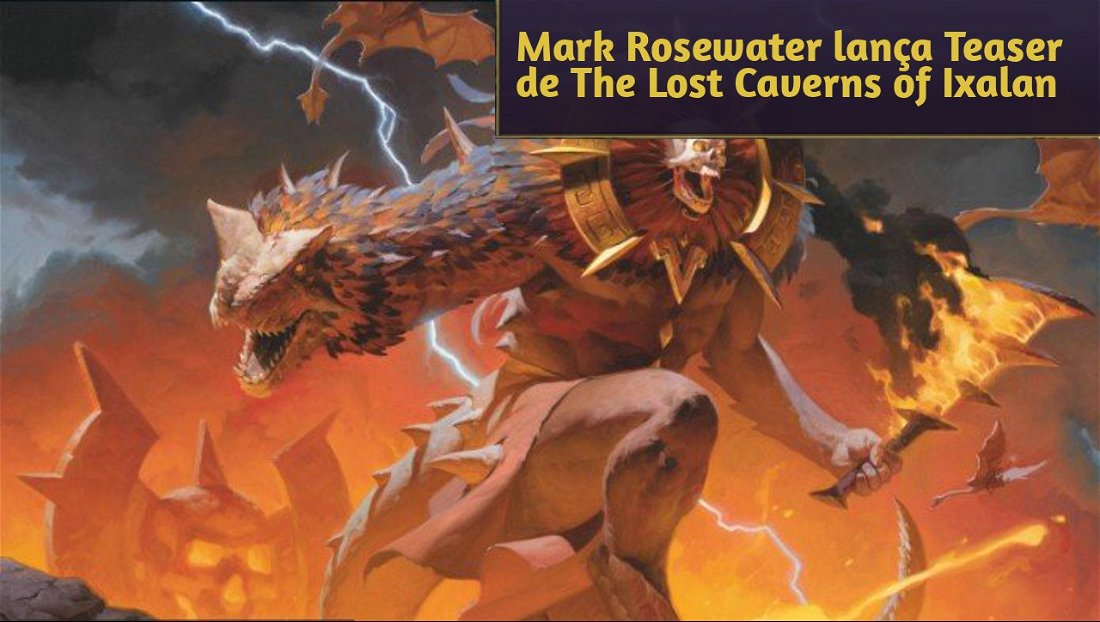Last Monday (16), the Pauper Format Panel, a committee that oversees and operates as a council for banning and unbanning decisions in the format, released a video through Gavin Verhey's Good Morning Magic to discuss the format's health, and the possibility of unbanning Prophetic Prism. You can check out the video below.
All the points made by PFP seem pertinent, Gavin's communication as the team's spokesperson remains good and, let's be honest, Pauper's performance in emergencies - as back when Initiative was taking over - has been exemplary. However, one point caught my attention both in the release of this video and in its content itself: the constant call for public participation and their opinions regarding the Panel's considerations.
While this call is, indeed, useful for creating a sense of community, there is a point that requires attention: playing for the audience, expecting their approval or disapproval in managing the format is a bad decision, creates dangerous precedents and, above all, puts Pauper's own integrity as a competitive format at risk.
I, personally, see it as a terrible take, and here's why.
The community knows what it wants, but will never agree on how it wants
Let's get straight to the point, every Magic player wants the same thing: for the game to be enjoyable and fun for them. The reason for there being so many formats also involves the diversity of tastes in the game's ecosystem, as there are players who prefer higher or lower power levels, faster or more interactive Metagames, more explosive or more attrition-oriented decks, and so on.
The problem is that there is not, in any Magic: The Gathering environment, a consensus on what is best for the community, coming from the community itself. Pauper, today, is the perfect example of this - as the video itself and the numbers point out, the format's current Metagame is dictated by four distinct strategies, with another four to six competing for space. In an overview, the diversity of decks points to a healthy environment, while as also pointed out in the video, the format's speed today also increases the experience of frustrating play patterns, where a player doesn't have the opportunity to enjoy the game.
For some, Pauper has been in a bad state, and for far too long. For others, the Metagame has become unbalanced since Modern Horizons II was released, and has never returned to what it was. Others, however, seem to follow the same line as the PFP of seeing diversity in numbers, and arguing that today's variety only differs because the best current decks are not the same as those from the pre-MH2 era. If we go deeper, there are still those who, nostalgic for archetypes like Stompy or Elves, yearn for interventions and/or downshifts that give their old decks the possibility of competing again - All of them, with no exception, just want to have fun playing Pauper.
But can you imagine the mess if formats were dictated by public opinion? Just based on the most frequent comments on social media, the following cards could just be banned:

Banning any of these would cause a crash in the format, and even if they were all banned, the Metagame would adapt, new best decks would emerge, and we would return to the circle where there is something wrong with Pauper. The format has never been completely balanced, and it never will be - not even with a direct insertion of specific cards, because there will always be the opportunity to add bolder options to shake things up, and these chances will always be taken.
Long-term stability in competitive Magic is a utopia, every new insertion brings a new risk, the game is in another era of abrupt changes in many ways, and power creep has never been as fast as it has been over the last three years. The so-called 'artificial rotations' happen, it is an autocratic action that players have no control over. Bans and unbans should be equally autocratic, since although players' opinions are important, the cacophony of different opinions about what is best for the Metagame does more harm than good when it comes to making decisions.
There is a clear reason for this.
PFP has the data, We don't
While the community can create documents, articles and spreadsheets to evaluate winrates, representation and other info, with Pauper being a format whose competitive environment is majority in MTGO, only people related to Wizards of the Coast have the necessary data to evaluate the format's health with surgical precision.
One of the advantages of establishing a council to manage something is that there is a plurality of opinions, and there is a need to reach a consensus rather than just making the decision that one or two individuals believe is best for a given issue. The biggest problem I see with any analysis or spreadsheet, mine included, is that they will always reflect the opinion or bias of that communicator, even when the only purpose of their text or document is to communicate.
Therefore, the chances of making more assertive decisions involve working with data that no one else has access to other than WotC itself, and the PFP. A clear example of this came from one of the committee's first bans, which is now the subject of debate about an unban: Prophetic Prism - no one expected it, no one wanted it to be banned. Still, this intervention had the exact effect the panel expected on both Tron and the multicolored Affinity variants.

Whether due to herd effect, or personal bias, Magic's social media will never have access to all the elements to see assertive decisions. Our logic is always to "ban the problem card", without looking at what surrounds it - Bridges and Monastery Swiftspear on Pauper, Grief on Modern, Karn, the Great Creator on Pioneer, Sheoldred, the Apocalypse in Standard... the 'accusation' is always against the most offensive piece. We are used to sharing our bad experience and linking it to the 'direct culprit', instead of investigating the context and collectively assessing, as if in the ancient Greek polis, where the problem lies.
Therefore, changes in the competitive environment must be autocratic
Not just in the format, not only in Magic, not only in TCGs. Any competitive game management needs a responsible team to define what is best or not for the environment, and the community needs to adapt to changes, or lack thereof.
Since the emergence of the PFP, Pauper has never, for long, been in a state where its competitive environment was unpalatable. When the emergency buttons needed to be pressed due to the Turbo Initiative, it was done within a few weeks.
The state of the current Metagame may not please everyone, but it is not at a point where one strategy is too predominant - therefore, the lack of intervention is also a decision and, as presented in the video above, a positioning that, just like all other direct interventions in Magic, are arbitrary.

It is not up to the player to decide what should or should not be banned is one of the elements that constitute the Magic: The Gathering's ecosystem. We've had several explanations and reasons for certain cards to be banned over the years, including situations of cards that created a 'bad experience' (Cauldron Familiar and Teferi, Time Raveler in Standard and Mycosynth Lattice in Modern), or for taking up too much time in a match (Second Sunrise in Modern and Sensei's Divining Top in Legacy), or even to 'diversify the format'.
Not all of them were surgical choices, not all bans work as planned, but they were all choices made by WotC, without needing to ask for outside opinions before making them. The only problem is that, as we saw in the banned and restricted update on October 16th, WotC also doesn't care about providing feedback on the formats with the same clarity as a specialized committee.
This does not mean not owing explanations to the community
One of the reasons for writing this article is that PFP manages, even in short videos, to be clear and concise about its vision. And in the Magic ecosystem as we know it, that vision is the law in Pauper, like it or not.
As mentioned above, one of the biggest problems with Wizards' official communication on banned and restricted announcements is that they are not always very objective about bans. The phase in which they presented winrates and other elements to justify leaving something in or out of a competitive format seems to have passed and, today, most explanations are limited to two paragraphs, or none, when there are no changes.
If the Panel took the same path and left players in the dark about their perspective, the topic of this article would be different, because there would be a huge issue regarding the committee's positioning. As long as they continue writing and making videos explaining how they see the format and discussing the key points of the Metagame's health, the community should give a little more confidence in their work and, for better or worse, accept the changes and circumstances in which the Pauper finds itself.
"So, what's your point?"
My point is, if the Pauper Format Panel wants to make any changes to the format, do so. Don't ask questions, don't play to the crowd, don't expect external approval. The committee is made to make the best decisions for the format, not the ones the public wants, and the community will never be unanimous about what it wants.
Decisions need to be made, the committee has access to information that we do not have, and postponing certain actions to seek external approval instead of analyzing, acting and observing the results is a dangerous method for an environment where each player has a perception of how they enjoy playing the game.
And while Gavin and the others are concerned about providing clear communication about the Metagame, the community should give a little more confidence in their statements instead of allowing themselves to be carried away by personal bias. There are countless ways to play Magic, and if Pauper doesn't appeal to you today, there are a dozen other options and/or formats to play, or you can even try different ways to adapt to the current environment.
And about that Prism, and a certain Goblin...
The problem that the "Name Sticker" Goblin is causing in the format, and the possible unbanning of Prophetic Prism were the two other topics of debate in the video, so let's discuss them a bit.


The online version of "Name Sticker" Goblin works differently than the one in the Unfinity set. The problem with the card in Pauper is that it always generates positive mana, while there is a risk that it will only generate resource parity, or negative mana on paper.
The fact that this creature works differently in both scenarios is reason enough to believe that it should be banned until Magic Online supports the right way to play with it. With the unified format, having different lists of the same Tier 1 deck due to a mechanical problem seems detrimental to the Metagame.
Furthermore, the "Name Sticker" Goblin in MTGO is basically a combo card, from which nothing fair will come of it. Its presence in the format sounds like an unnecessary risk, and a bad mismatch for Pauper's uniqueness, especially for countries that have major tournaments in the format.

The banning of Prophetic Prism was perhaps PFP's most ingenious initiative, and served its purpose of holding back Tron's mana efficiency. Since then, it has managed to maintain itself thanks to Energy Refractor, but has lost some speed and consistency. Its ban also affected Affinity's color consistency, but it wasn't felt as much by the archetype.
While, yes, Pauper is faster today, the unbanning of Prophetic Prism seems to bring more problems than solutions. Tron, as an archetype, manages to remain in Tier 1.5 or Tier 2 currently, and doesn't appear to need a push just to gain more space - worse than losing quickly, is getting stuck in a soft-lock, hoping for the opponent to lose on the clock. In tabletop games, the situation is even worse because, if the Tron player wins Game 1, a draw in Game 2 is an excellent result for them.
Therefore, unbanning the artifact seems to only worsen Pauper in an attempt to make it less fast, with an archetype that suffers precisely against the proposals of three of the four best decks in the format. The idea of trying to slow down Pauper isn't a bad one, but bringing Prophetic Prism back into it seems like the wrong way to go, given that the experience Tron provides is just as disgusting, or even worse, than losing fast against the Metagame's top tiers.
Conclusion
That's all for today.
If you have any questions, suggestions, or ideas, feel free to leave a comment!
Thanks for reading!













— Kommentare 0
, Reaktionen 1
Sei der erste der kommentiert